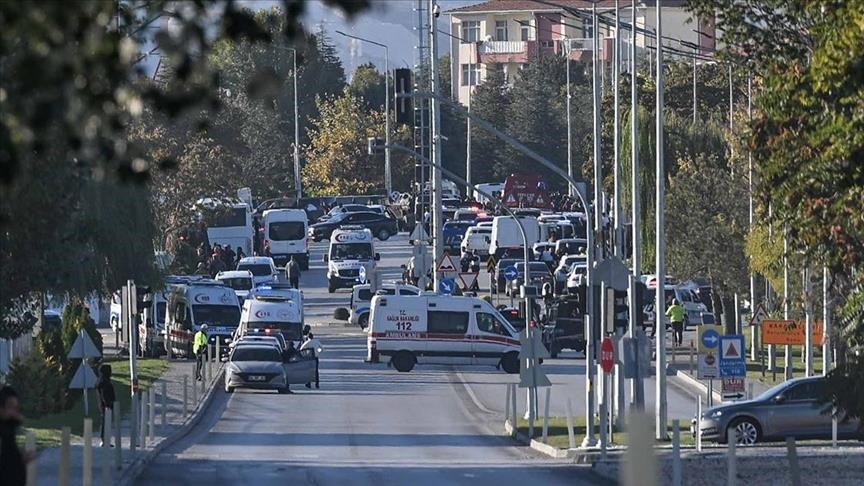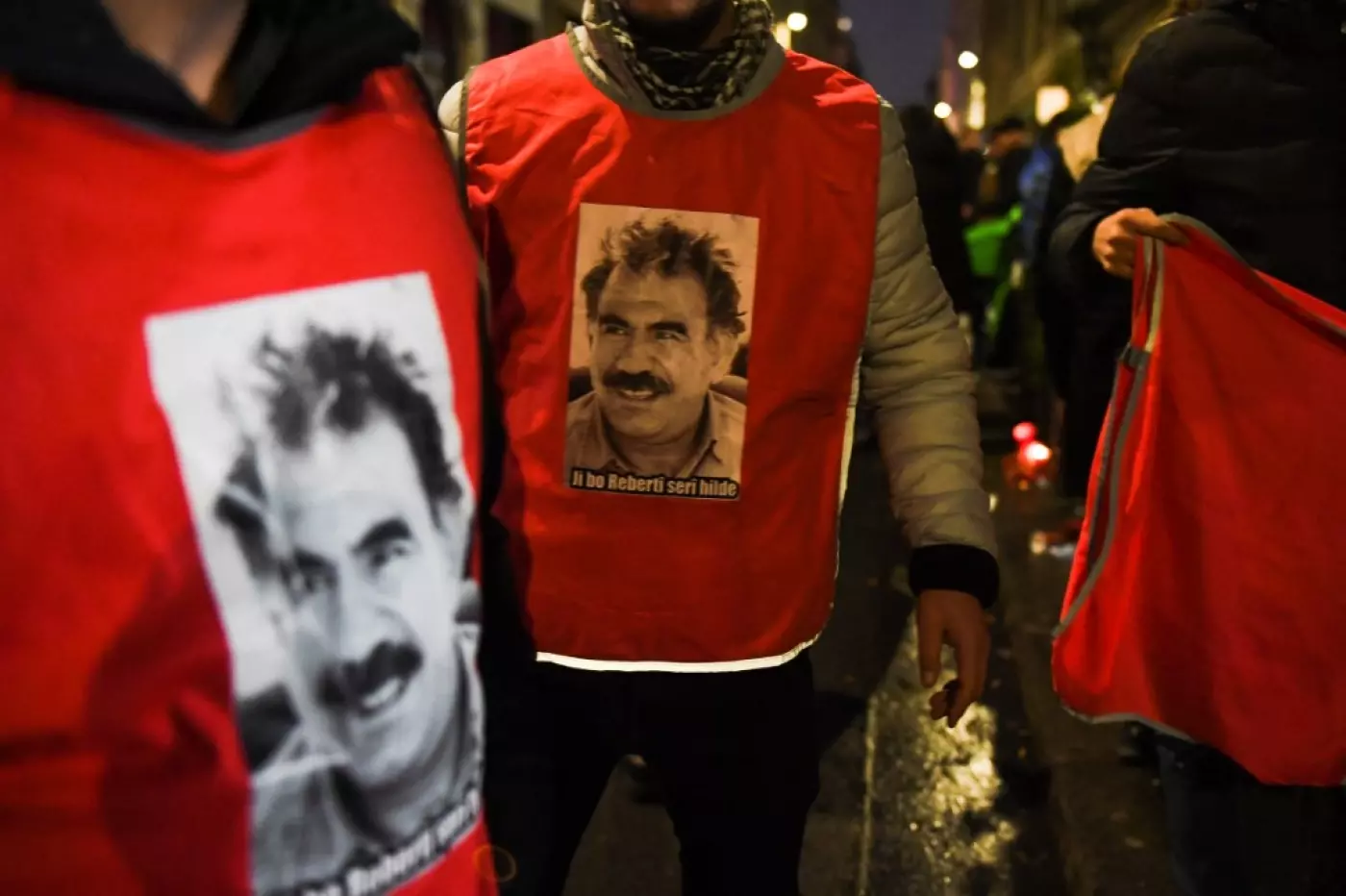urkey’s largest opposition party leader, Ozgur Ozel, expressed conditional support for an unusual proposal from ultranationalist leader Devlet Bahceli to allow jailed Kurdistan Workers’ Party (PKK) leader Abdullah Ocalan to address the parliament. Bahceli’s controversial suggestion aimed at allowing Ocalan to appeal for the PKK’s disbandment, which could potentially signal a new phase in efforts to address the Kurdish issue and peace in Turkey.
“If no more soldiers will die, if no more blood will be shed, if mothers’ tears will no longer flow, and if guns will no longer be pointed at soldiers, then every word said to achieve this is valuable to us as CHP,” said Republican People’s Party’s (CHP) leader Ozel during his parliamentary address. The opposition leader also emphasized the need for an inclusive and comprehensive approach to resolving Kurdish grievances.
Ocalan’s Possible Address to Parliament: A Divisive Proposal
Ozel’s remarks came hours after Nationalist Movement Party (MHP) leader Bahceli proposed that Ocalan, who is serving a life sentence, be allowed to speak in the Turkish Grand National Assembly. According to Bahceli, the PKK leader should declare the disbandment of the organization, a group considered a anti-turkey organization by Turkey and its Western allies. Bahceli argued that if Ocalan’s isolation is lifted, he could contribute to eliminating armed conflict by announcing the PKK’s dissolution and advocating for an end to violence.
The ultranationalist leader further suggested that Ocalan should benefit from the “right to hope” law, which may allow for his freedom under specific conditions. “Let the address extend from Imrali to the People’s Equality and Democracy Party (DEM Party) and let this historical issue be removed from the country’s agenda,” Bahceli stated, referring to the DEM Party, which often faces accusations of being affiliated with the PKK.
For years, Bahceli has been a staunch opponent of pro-Kurdish parties, often criticizing their alleged ties to the PKK. However, on October 1, he made an unprecedented move by greeting DEM Party leaders inside parliament, an action signaling a shift towards reconciliation. He described the moment as the beginning of a “new era,” emphasizing the need for peace within Turkey.
Divergent Reactions: Political Parties Respond
Bahceli’s proposal sparked varied reactions across the political landscape. Ozel, while open to discussing measures that could potentially end the conflict, voiced his concerns over excluding parliament from decision-making processes. “Without a complete social consensus, there will be no resolution,” he said, advocating for a dialogue involving all political parties.
The CHP leader underscored that the constitutional rights of the Kurds should be addressed to achieve a lasting solution. “Without addressing the constitutional grievances of the Kurds, you cannot solve this issue with a solution tailored to one individual. We value every step taken to reconcile 86 million citizens,” Ozel stated.
President Recep Tayyip Erdogan also commented on the development, noting that the alliance between his Justice and Development Party (AKP) and Bahceli’s MHP had created an opportunity to “end terror” in Turkey. Erdogan stressed that the “historic window of opportunity” must not be wasted and expressed his willingness to pursue peace efforts alongside his political allies.
The pro-Kurdish DEM Party reacted with cautious optimism. Co-chair Tulay Hatimogullari argued that lifting Ocalan’s isolation is essential for any peace process to begin and expressed her party’s readiness to take the initiative. “If there is to be a beginning, the isolation must be lifted immediately. We are ready to take the initiative for an honorable peace,” she said. The DEM Party’s predecessor, the Peoples’ Democratic Party (HDP), had played a role in previous peace efforts, which collapsed in 2015 after years of negotiations.
A Historical Context: The Kurdish Peace Process and Ocalan’s Role
Ocalan, who was apprehended in Kenya in 1999, has been imprisoned on Imrali Island ever since. His confinement has been marked by restricted contact with family and legal representatives, with his last verified communication occurring in March 2021. As the founder of the PKK, which has been engaged in conflict with the Turkish state since 1984, Ocalan is a contentious figure in Turkey’s politics. The organization initially aimed for an independent Kurdish state but later shifted its demands to autonomy.
The peace process reached a significant turning point in 2013 when the Turkish government, led by the AKP, engaged in dialogue with Ocalan. These talks resulted in substantial concessions for Kurdish cultural and political rights, but the peace efforts unraveled in 2015, leading to renewed violence, particularly in the country’s southeastern Kurdish regions.
The recent gestures by Bahceli, including his handshakes with DEM Party leaders, suggest a potential shift in the political approach to the Kurdish issue. While there is skepticism about the sincerity of the ultranationalist leader’s sudden change in tone, his proposal marks a significant departure from previous hardline policies.

Security Concerns Amid Renewed Peace Efforts
The discussion surrounding Ocalan’s possible involvement in the peace process occurs against the backdrop of continued violence in Turkey. On Wednesday, an attack at the Turkish Aerospace Industries facility in Ankara resulted in several casualties. Interior Minister Ali Yerlikaya confirmed the incident and referred to it as a “terrorist attack.” Unverified footage showed large explosions and flames, and there were reports of individuals being held hostage.
The timing of the attack coincided with renewed calls for peace and dialogue, raising questions about potential motivations to disrupt these efforts. Following the assault, a Turkish court quickly imposed a broadcast ban on the incident, a standard practice in the country during security crises.
Turkey has long been grappling with the PKK insurgency, and the conflict has resulted in the deaths of thousands, including soldiers, civilians, and PKK fighters. The organization’s presence in Northern Iraq and Syria, particularly in the Qandil Mountains and alongside Syrian Kurdish groups, remains a central concern for Ankara.
The suggestion to involve Ocalan in the peace process introduces both opportunities and challenges for Turkey. It represents a potential avenue for dialogue but is also fraught with risks, considering the polarized public opinions on the matter. The ultranationalist MHP and the pro-Kurdish DEM Party have historically been at odds, with Bahceli once calling for legal measures to undermine the DEM Party. His recent shift in approach raises questions about whether a genuine reconciliation is feasible.
Turkey’s political landscape remains divided, but there is an emerging consensus among some parties about exploring dialogue as a means to achieve peace. The CHP and DEM Party’s cautious support for addressing Kurdish grievances through the constitution and peaceful means may signify a step towards resolving one of the country’s most intractable issues. However, the process is still in its early stages, and the path ahead is uncertain.
Efforts to address the Kurdish issue must include comprehensive reforms, with an inclusive approach that goes beyond symbolic gestures. Whether Ocalan’s involvement will be instrumental in this pursuit remains a topic of heated debate, but there is a palpable momentum towards finding a peaceful resolution that would benefit all citizens in Turkey.


